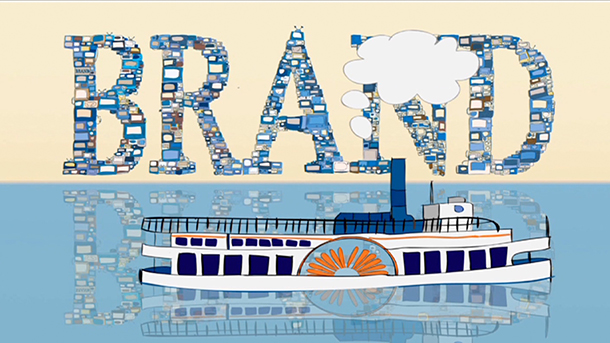Online advertising in a recession
Client: Animated Factual
Genre: Factual
Director: John Lumgair
Produced by: Quirky Motion
Gordon Brown attracted scorn and ridicule when he appeared on YouTube recently to announce plans to reform parliamentary expenses. But, arguments about the Prime Minister's ability to turn aside, his decision to do it speaks volumes about the power of online video to get across your message, especially in a recession. For a start, according to proprietary research from OMD last October, the average person is spending an additional 87 minutes online. Consumers see web surfing as a form of escapism more so than films, taking a walk or curling up with a good book. With people choosing to stay in more, 76% of respondents cited the internet as the primary means of escape. But, consumers don't stop buying in an economic downturn. They just become more selective about how they spend their money. So, the key is to make sure that consumers choose you instead of your competitors.
The more they see your brand, wherever they are, the more they'll remember and trust it. It just so happens that more people are hanging out in cyberspace. But wait, you think, advertising is traditionally one of the first things to go when the economy goes south, why should this recession be any different? Well, according to a YouGov poll for Marketing Week at the end of 2008, 42% of UK marketers expected to increase spending on digital advertising this year, while 20-30% foresaw a drop in spending each for TV, print, radio and cinema advertising. Across Western Europe, the picture is much the same. Forrester Research predicts online advertising spending to grow by 10% this year, with an annual growth rate of nine per cent until 2012. And just as economists and politicians are looking to past recessions to get out of this one, history shows that those companies who keep up promotion during downturns come out the other end with higher sales, larger market share and stronger brands than those who don't.
During the 1930s Great Depression, breakfast cereal companies cut spending in this way, except for Kelloggs. As the economy recovered in the forties, it was Kelloggs who was the market leader, and they are still holding onto the crown. Lever Brothers is another example; they advertised margarine during World War Two in places they did not even sell it. Lord Leverhulme, one of the founders of Lever Brothers, is best remembered for saying I know half of my advertising spend is wasted but which half the half being saved or the half being spent to maintain or increase demand. So, do you really want to be the one not advertising online at this time? And let's be honest, as Gordon Brown anticipated and probably now regrets, online videos are so much easier to remember than textual articles or banner ads. This video was produced by www.quirkymotion.com


